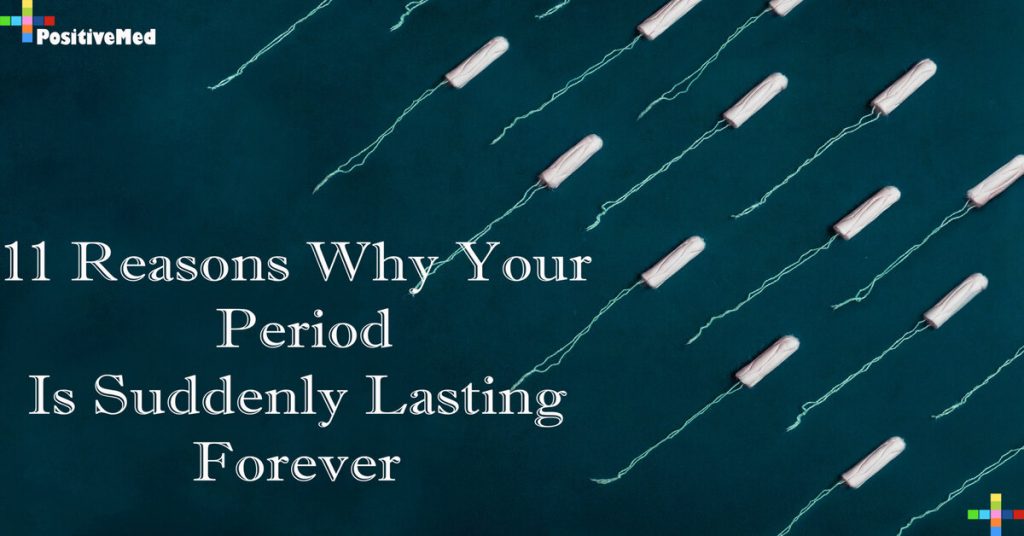What causes long periods lasting forever?”
Long period
When should a woman call her doctor?
If a woman notices changes in her menstrual cycle that last more than three months, she should call her doctor.
She should also call her doctor if a period lasts more than ten days. Long periods lasting forever increase the risk of developing a condition called menorrhagia which can cause complications like anemia.
Long periods often have causes that are either benign or can be readily treated, as many of the following:
1. Menopause
A woman’s periods stop altogether when she is in her early 50s. As she approaches menopause, her body will produce fewer hormones, and that decline in hormone levels can alter her menstrual cycle by making it longer, shorter, or more erratic.
2. Pregnancy
In most cases, cessation of periods indicates pregnancy. Some women have a heavier than normal period after getting pregnant. It happens often enough that doctors recommend a pregnancy test in cases of abnormal bleeding.
3. IUD
There are two main types of intrauterine devices (IUDs): a copper-based and non-hormonal types like Paraguard and a hormonal type like Skyla. Hormonal IUDs use progestin, which eventually reduces the number of periods a woman has. For the first few months, however, a woman will often have longer or heavier periods than usual. Copper-based IUDs are known to cause heavier periods.
4. Intermenstrual bleeding
Sometimes, a woman will start menstruating at the same time her ovaries have released an egg. Intermenstrual bleeding is generally benign, but a woman should call her doctor if it’s accompanied by severe pain.
5. Hormonal birth control
Any drug that manipulates hormones can make a woman’s period longer or heavier. That includes hormonal birth control like the Pill, implants, patches, and so on.
6. Early miscarriage
Many miscarriages occur before a woman even knows she is pregnant. In such cases, an extra-long or heavy period may be the only sign. If things don’t go back to normal after three cycles, call a doctor.
7. Polycystic ovarian disease
The polycystic ovarian disease is a common condition in which cysts grow on the ovaries and prevent them from ovulating. It also causes hormonal imbalances that cause a variety of symptoms including prolonged periods.
8. Uterine fibroids or polyps
Fibroids and polyps are generally benign growths, but the body senses they are not supposed to be there and will thus try to flush them out. Extended periods can thus be a symptom of such growths.
9. Hypothyroidism
Hypothyroidism is caused by the thyroid gland producing too little thyroid hormone. Symptoms include hair loss, weight gain, and prolonged periods.
10. Blood disorder
In rare cases, an underlying blood disorder can cause prolonged periods. After ruling out more common causes, it might be worth investigating.
11. Cervical cancer
Abnormal bleeding from the vagina, like spotting between periods, is a symptom of cervical cancer. HPV tests and Pap smears enable doctors to spot cancer.
If a woman notices anything odd about her menstrual cycle that lasts longer than three months, she should see her doctor.







